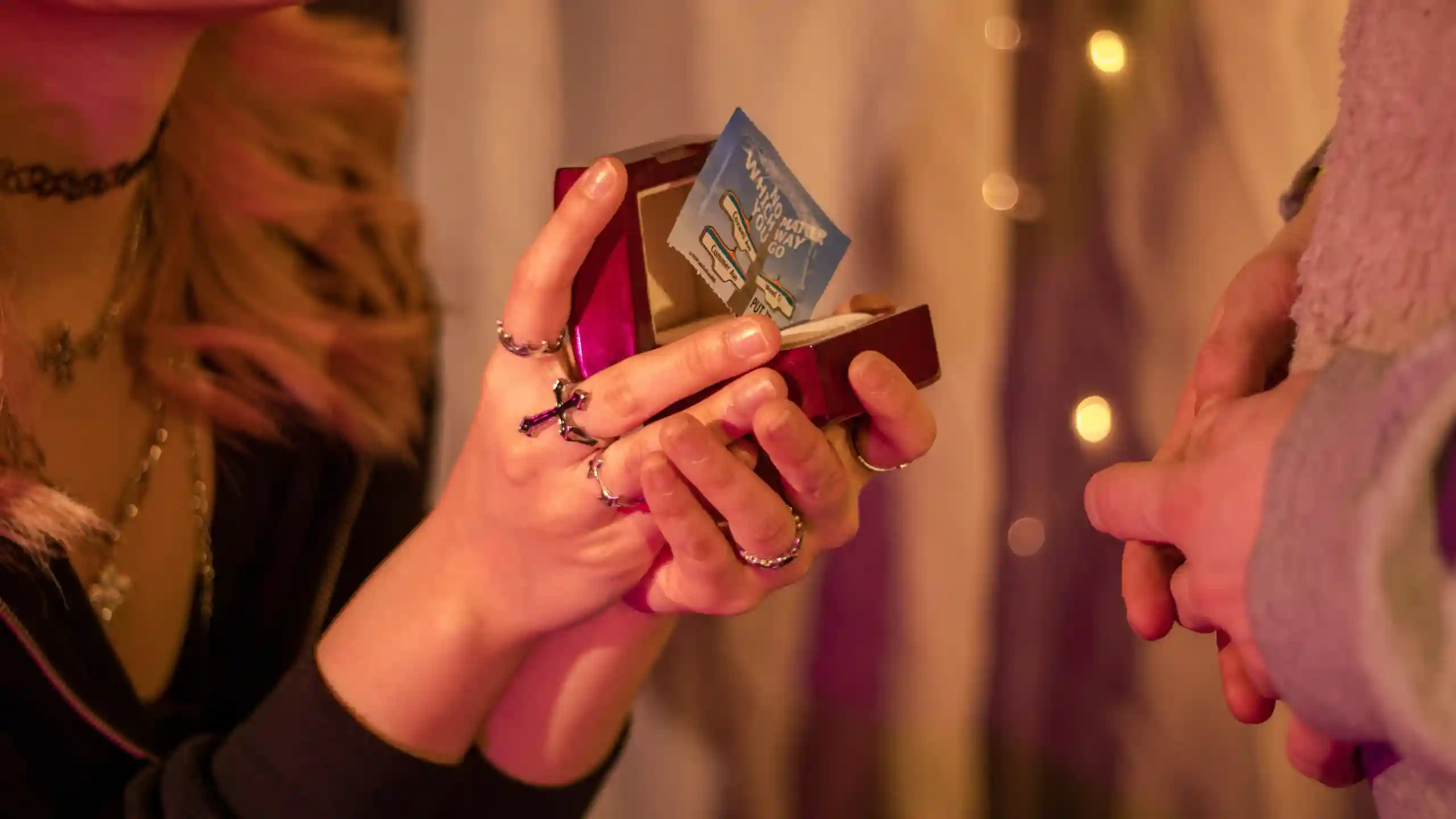In July 2021, I had just passed the 10-month mark of casually seeing a guy when out of the blue, he dumped me at the playground in my neighbourhood.
The sounds of children screaming in excitement, their parents making small talk and dogs barking at each other as they crossed paths were drowned out by his softly-spoken words: “I think we should see other people.”
As we walked along the wooded trail, I stopped in my tracks. “Don’t cry, don’t cry, don’t cry,” I mentally told myself. When I looked up at him again, tears welling in my eyes, I managed to stifle out, “Why?”
Looking back, I realize “Why?” is the question I should’ve been asking myself. Like I said, we were only casually seeing each other—I was never his girlfriend, he was never my boyfriend. We would just hook-up a few times a month out of boredom, convenience or both. So “why” was I upset?
Dr. Brenda Lee, a psychologist in British Columbia who has conducted extensive research into intimate relationships, says it’s quite common to develop romantic feelings toward people with whom you engage in a sexual relationship.
“As human beings, we don't tend to silo our experiences and we are very much relational,” Lee says. “Our connections to other people are informed by what we see in the relationships around us, which in our Western culture tends to really emphasize monogamous, exclusive pairings that are both romantic as well as sexual.”
In a
2012 scholarly article titled, “Sexual Hookup Culture: A Review” from the
Review of General Psychology, a study found that out of 681 young adults, more than half of the surveyed college-aged men and women preferred a traditional romantic relationship as opposed to an uncommitted sexual relationship, commonly known as a hook-up.

As students explore their sexualities and build relationships, navigating the slippery slopes of romance when in a casual setting can be challenging. For students at Toronto Metropolitan University (TMU), it’s important to distinguish between feelings of lust and love and determine if romance has a place in their hook-up. Otherwise, feelings can get messy when both people aren’t on the same page about what their relationship actually is.
Lee explains that when a person engages in physical contact or experiences orgasm with a partner—behaviour typically seen in a hook-up-type of relationship—oxytocin is released, which initiates feelings of closeness and intimacy throughout the body.
“In some ways, our bodies are encouraging these bonds that go beyond just a sexual relationship,” she says.
But chemistry between two people who initially enter into a strictly sexual partnership can eventually cause a rift in the relationship, especially if only one of the parties catches feelings.
When first-year film student Emma* started at TMU last September, she was looking for a partnership “without the commitment of a relationship” that would allow her to express her sexuality and gain sexual experience.
Within a few days of meeting an actor from another school at a party in mid-October 2022, she began a sexual relationship with him. As they kept hooking up, Emma says he started thinking that their casual fling would transition into a romantic relationship. Eventually, they became “friends with benefits”—two friends having casual, non-committal but recurring sex.
In November, the pair were getting hot and heavy in the stairwell on the 20th floor of the actor’s apartment building when he suddenly stopped and said, “I have something to tell you.”
As the lime-green paint peeled off the walls in little flakes beside her, Emma braced herself for the next words that came out of his mouth: “I think you’re really cool…I’m in love with you.”
At that point, Emma and the actor had only known each other for three weeks.
“When I didn't say anything for the first five seconds, he got the idea,” she says. She remembers eventually telling him, “You know, I really care about you as a friend,” as the actor began tearing up.
When it comes to transitioning from a sexual relationship to a romantic one, Lee suggests that the two parties engage in self-reflection to help them figure out if they want to take that next step. If not, having a conversation about their feelings will allow for increased clarity at the end of the partnership.
“If you do not intend to ever have a romantic relationship with this person, at least at this point in time, be very clear about it,” Lee says.
She adds that honestly communicating your intentions with the person you’re hooking-up with throughout the partnership allows them to make informed decisions around their body and feelings.

“You cannot change somebody else's feelings,” Lee says. “The kindest thing you can do is help the other person to make their own decision by being clear about where you stand with them.”
Based on her experience, Emma says mixing romance with hook-up culture can be dangerous and can “really mess someone up.”
“Romance is more in the heart,” she says. “And when that gets involved, if it’s not reciprocated to hopefully the same degree, it can get really messy and that’s where feelings get hurt.”
Lee says regardless of how someone feels about the person they’re seeing, it’s important to acknowledge their emotions to determine how the relationship will proceed and to ensure both parties continue to see the partnership as equally beneficial and pleasurable.
"Ultimately, it is not a dangerous thing to have feelings but it can be a more misery-inducing process if we tried to pretend feelings don't exist,” Lee says.
Following that July 2021 encounter, I still keep in touch with my hook-up (and his friends that I became close with), but my feelings and dreams of a romantic relationship with him have faded away. Since then, I’ve formed connections with other people—romantic, sexual or a little bit of both—and find myself having to navigate my feelings to determine what I want in each relationship.
I firmly believe that romance has its place in hook-up culture, since feelings often develop whether we want them to or not. Though, how we choose to address those emotions determines how the rest of the relationship will play out. If you embrace them, you take the next step in your partnership. But if you invalidate the romance or the feelings are one-sided, it can leave both parties at a loss.
“Relationships are messy,” Lee says. “It doesn't matter if it's sexual, if it's romantic, if it's platonic, if it's familial…we as human beings deal with the messiness.”
And that’s what I plan on doing.
*For privacy reasons, Emma’s last name was purposefully omitted from this story.


